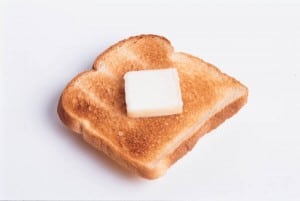People fast for many reasons: as a religious observance or spiritual ritual, as a political protest, in preparation for medical procedures, or as an occasional health practice. And studies have confirmed that short-term fasting can have a number of health benefits. Yet fasting for the purposes of losing weight is not generally seen as a good idea.
Fasting Doesn’t Teach You How to Eat Better
One argument is that you need to learn healthy eating habits in order to achieve long-term weight control. Fasting is by necessity a short-term strategy. Sooner or later, you have to begin eating again. And skills such as exercising portion control, choosing more nutritious foods and fewer empty calories, eating more vegetables and whole grains are not developed by fasting.
And we’ve all heard the argument that people who skip meals (whether one or a whole day’s worth) tend to eat more calories later to compensate. (More on that in a moment.) But a series of new studies, summarized in the U.S. News and World Report, suggest that there may be a legitimate role for modified fasting as a weight loss tool.
Fasting as a Dieting Strategy
A group of researchers in Louisiana conducted a small study in which overweight subjects ate just 20% of their normal caloric intake every other day. On the days in between, they ate as much as they wanted. On average, they lost about 8% of their body weight over the next two months.
Inspired by these results, Kenneth Webb decided to try his own version of the program. Webb calculated his daily calorie requirements (you can calculate yours with this Daily Needs Calculator) and ate just 30% that many calories every other day. On the alternate days, he ate 130%. Over the course of about seven months, he lost 30 pounds. Not surprising, because he reduced his overall calorie intake by about 20%. But Webb says his one-day-on, one-day-off routine has a psychological advantage: He claims that it’s easy to be disciplined for a single day, knowing that the next day he’ll be eating as much as he wants–with no guilt.
Health and Anti-Aging Benefits of Fasting
There appear to be health benefits to fasting as well. Short-term fasting has been shown to reduce the risk of heart disease, improve insulin sensitivity, and slow the cellular aging process. Some research suggests that fasting every other day may be almost as effective (and far less difficult) than the practice of calorie restriction.
Still, fasting isn’t for everyone. For some, going an entire day on just a few hundred calories is simply too uncomfortable. For others–especially anyone who has struggled with eating disorders–the alternating sequence of fasting and feasting may lead to out-of-control binging. You’ll have to be the judge of whether this strategy is a good fit for your lifestyle, disposition, and relationship to food.
And if you do decide to try it, remember that when calories are limited, the quality of them matters even more. On your fasting days, be sure to concentrate on nutritious foods like fruits, vegetables, and lean protein.
A final thought: We’ve all been led to believe that skipping meals is an ineffective way to lose weight. But research from Cornell University suggests that restricting calories for one meal per day may be an effective weight loss strategy.
In a small, 2-week study, one group was given a 200 calorie (kcal) lunch (such as a cup of yogurt or bowl of soup) and another was given a 600 calorie (kcal) buffet lunch. Both groups were allowed to eat as much as they wanted the rest of the day. Surprisingly, those who ate only 200 calories for lunch didn’t seem to compensate by eating more the rest of the day. In fact, their daily calorie intake was, on average, precisely 400 calories less than those who ate the larger lunch, leading to weight loss.
Time for you to weigh in (so to speak!) on this interesting topic:
Have you ever tried modified fasting as a weight control strategy? How did it work for you?
Do you think every other day fasting would be a workable lifestyle? Easier than dieting every day? Or do you think its just a gimmick?
Would the possible health benefits of fasting, aside from weight control, motivate you to try this approach?
I look forward to your comments and discussion!
 Hold the skim latte and bring on the butter? High-fat breakfasts are enjoying a comeback in some circles, after a study published in the International Journal of Obesity found that rats who ate a high fat breakfast burned more fat throughout the day than rats who ate a high carbohydrate breakfast.
Hold the skim latte and bring on the butter? High-fat breakfasts are enjoying a comeback in some circles, after a study published in the International Journal of Obesity found that rats who ate a high fat breakfast burned more fat throughout the day than rats who ate a high carbohydrate breakfast.
 As you may have noticed, whether I’m talking about
As you may have noticed, whether I’m talking about  If losing weight is one of your New Year’s resolutions, sooner or later you’ll probably find your resolve tested by an overwhelming desire for something really naughty. Hopefully, you’ll reach for a diet-friendly snack instead. But your chances of heading off dietary disaster will be higher if you choose an alternative that is a good match for your particular craving.
If losing weight is one of your New Year’s resolutions, sooner or later you’ll probably find your resolve tested by an overwhelming desire for something really naughty. Hopefully, you’ll reach for a diet-friendly snack instead. But your chances of heading off dietary disaster will be higher if you choose an alternative that is a good match for your particular craving.